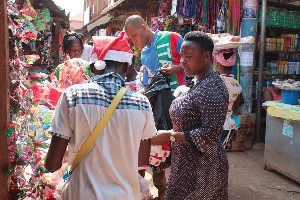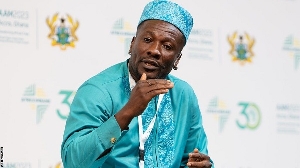Street vendors are the constituents of an informal economy and are a noticeable lot especially in developing countries.
In-depth findings reveal that the sweat shed by street vendors is valuable to the urban livelihood space.
In Ghana, the feelings of vendors belonging to the Makola Traders’ Association, Kantamanko Traders’ Association and Circle Traders’ Association through light on the inference that almost 88% of street vendors earn their primary income from informal work. Men on an average, get a bigger chunk of the total sales value.
There is an aura of dissatisfaction looming large over the street vendors. They are of the opinion that loans required to sustain or better their business come at high-interest rates which jeopardizes their commitment to repay their debts.
Predominantly while the growing inflation is a worrying factor, vendors also see the activities of foreign traders as detrimental.
Seizure of goods that are in breach of patents by city task forces and negotiating higher prices with customers add to their difficulties.
Further, demolition of trading spaces and confiscation of goods are other perils that do not come with a discount.
Interestingly street vendors do make substantial contributions to both the informal and formal economies of Ghana which, thankfully, are intact.
Given this, there is a long-felt need to consider that “consultation” rather than a “confrontational approach” will create a balanced equation between the street vendors and the authorities. This, to a sizeable extent, can cushion the imbroglio.
This year, the festoons of hope and joy are bound to flutter over the street sides because shoppers may follow ‘social distancing’ from expensive in-store goods due to an economy bludgeoned by the COVID-19 pandemic.
That should enable some good business to jingle all the way for Ghana’s street sellers during this Christmas – New Year season.
Click to view details



Business News of Monday, 21 December 2020
Source: goldstreetbusiness.com

















